Uncategorized
-
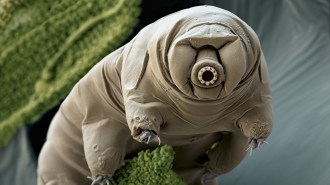 Animals
AnimalsTardigrades could teach us how to handle the rigors of space travel
Tardigrades can withstand X-rays, freezing and vacuum. Now researchers are learning how they do it, with an eye toward human space travel.
By Douglas Fox -
 Health & Medicine
Health & MedicineTwo pig hearts were successfully transplanted into brain-dead people
The transplants kept the patients’ blood flowing for three days and are an early step in figuring out if the procedure might work in living people.
-
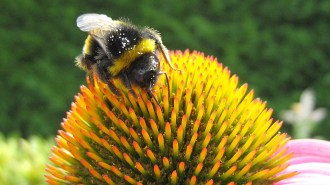 Environment
EnvironmentFlower shape and size impact bees’ chances of catching gut parasites
Bumblebees have higher chances of contracting a gut parasite from short, wide flowers than from blooms with other shapes, experiments show.
-
 Science & Society
Science & Society‘Virology’ ponders society’s relationship with viruses
In a collection of wide-ranging essays, microbiologist Joseph Osmundson reflects on the COVID-19 pandemic and calls for “a new rhetoric of care.”
-
 Astronomy
AstronomyHere are the James Webb Space Telescope’s stunning first pictures
President Biden revealed the NASA telescope's image of ancient galaxies whose light has been traveling 13 billion years to reach us.
-
 Physics
PhysicsWiggling metal beams offer a new way to test gravity’s strength
A new experiment aims to get a better handle on “Big G,” the poorly measured gravitational constant.
-
 Anthropology
AnthropologyDemond Mullins climbed Everest to inspire more Black outdoor enthusiasts
Mullins hopes his successful Mount Everest summit will encourage more Black people to experience the great outdoors.
-
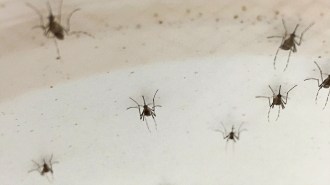 Health & Medicine
Health & MedicineThe flowery scent of a Zika or dengue infection lures mosquitoes
Mice and humans infected with dengue emit acetophenone, attracting bloodsucking mosquitoes that could then transmit the viruses to new hosts.
-

-

We won’t shy away from covering politicized science
Editor in chief Nancy Shute discusses Science News' commitment to covering politicized science
By Nancy Shute -
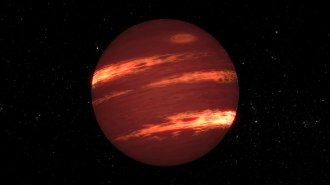 Astronomy
AstronomySand clouds are common in atmospheres of brown dwarfs
Dozens of newly examined brown dwarfs have clouds of silicates, confirming an old theory and revealing how these failed stars live.
-
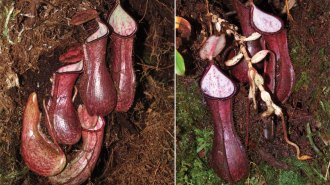 Plants
PlantsThis pitcher plant species sets its deathtraps underground
Scientists didn’t expect the carnivorous, eggplant-shaped pitchers to be sturdy enough to survive below the surface.
By Meghan Rosen